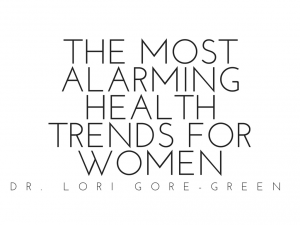 The Institute for Women’s Policy Research culled data from the last twenty years showing certain trends (or health hazards) of which women should make themselves aware. Knowledge is power, and it is certainly the strongest arm in the battle against harmful risks to health.
The Institute for Women’s Policy Research culled data from the last twenty years showing certain trends (or health hazards) of which women should make themselves aware. Knowledge is power, and it is certainly the strongest arm in the battle against harmful risks to health.
As always, women should learn about the dangers, statistics, methods of protection against sexually transmitted infections. Women (and men, for that matter) are increasingly infected with diseases like Chlamydia with numbers rising 40% incidence over the last ten years. Today, it is estimated that more than one million people are infected. At least one half of women (and upward of three-fourths) infected show few to no symptoms, increasing the risk of transmission to sexual partners and children through childbirth. As is the case with many diseases, Chlamydia left untreated may result in greater problems of infertility and pelvic and cervical infections. Fortunately, Chlamydia and similar infections can be treated early with a course of antibiotics.
Women will also benefit from asking themselves how they feel, and if they are satisfied with their lives. Recently general feelings of well-being and happiness come back low, and suicide in on the rise. Women are slowly feeling more stressed and anxious leading to severe, untreated cases of depression. Many symptoms are ignored as insignificant, and may even go unnoticed as part and parcel of life’s experience. Whether stresses are attributed to personal hardships or universal complaints (such as a declining economy, and weaker job prospects) women should take their mental health and bodily cues more seriously. (Caucasian women, specifically, showed a greater-than-average tendency to commit suicide after prolonged periods of sadness and anxiety.)
As is a trend on the national scale, fewer and fewer women report daily exercise routines, as more face problems of physical health such as obesity and diabetes. Less than half of the country actively participates in some form of regular exercise—running, swimming, yoga. The Institute’s report showed six out of every ten women are overweight, with one in ten already suffering from diabetes. Being overweight puts women at a greater risk of a number of health problems including heart disease and stroke. (Black and Native American women showed the highest incidence for diabetes.)
Good health is crucial to a sense of well-being and fulfilment. Precautions against health risks must not wait until after negative effects begin to show. Just as a contagion can spread from one woman to another, good health and well-being are communicable too.